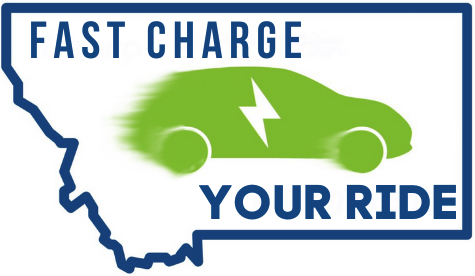Federal Funding Update
The bi-partisan infrastructure bill provides a historic level of funding for infrastructure; including roads, bridges, and broadband. Yellowstone-Teton Clean Cities (YTCC) is closely following the funding earmarked for electric vehicle charging stations, alternative fuels and infrastructure, transit, and school buses. YTCC’s goal is to make it as easy as possible for you to understand what funding is available and to help you apply for the funding that suits your fleet’s needs.
The chart below displays the federal funds currently available, the federal entity they are available through, and the amount available.

*Both the Low or No Emissions Vehicle Program and Bus Facilities Programs closed applications on May 31st, 2022.
National Electric Vehicle Program (NEVI)
The National Electric Vehicle Program (NEVI) consists of 5 billion dollars that will be provided to individual states to strategically deploy EV charging infrastructure and establish an interconnected network to facilitate data collection, access, and reliability. The program guidance was released on February 10th and state plans are due on August 1, 2022. Then September 30th, the Federal Highway Administration will approve state plans.
Some requirements for this funding are:
- The charging stations have to be located along a designated alternative fuel corridor
- A charging station needs to be located every 50 miles within 1 mile of an interstate
- Each state needs at least four 150 kW DC (direct current) fast-charging stations with CCS (combined charging system) ports
- The charging stations must be at or above 600 kW of power to support at least 150 kW per charging port simultaneously

Learn more about the State of Montana’s NEVI Plan submission.
Learn more about the State of Idaho’s NEVI Plan submission.
Grants for Charging and Fueling Infrastructure
The new Charging and Fueling Infrastructure Grant Program will provide $2.5 billion in discretionary funds over the next five years to deploy electric vehicle charging and hydrogen/propane/natural gas fueling infrastructure along designated alternative fuel corridors and in communities. Grant program must be established by November 15, 2022
- 1.25 billion dollars is for fueling along designated corridors
- 1.25 billion dollars is for infrastructure for communities
- This could fund EV charging, hydrogen, natural gas, and propane infrastructure
- There is availability to provide inputs on state plans for this funding through your state’s department of transportation
Learn more about the program HERE.
Carbon Reduction Program
The Carbon Reduction Program will fund a wide range of projects designed to reduce carbon dioxide emissions from on-road highway sources — from installing infrastructure to support the electrification of freight vehicles or personal cars, to constructing Bus Rapid Transit corridors, to facilitating micro-mobility and biking.
- Available funds must be obligated for projects that support the reduction of transportation emissions
- This program requires each state to develop a carbon reduction strategy no later then 2 years after enactment of the program
Learn more about the program HERE.
Clean School Bus Program
With funding from the Bipartisan Infrastructure Law, EPA’s new Clean School Bus Program provides $5 billion over the next five years (FY 2022-2026) to replace existing school buses with zero-emission and low-emission models. EPA is offering $500 million through the 2022 Clean School Bus Rebates for zero-emission and low-emission school bus rebates as the first funding opportunity. EPA will continue to update this page with additional Clean School Bus Program funding information and educational resources.
- $500 million available in 2022 for zero emission school bus rebates
- Who is eligible to apply:
- State and local governmental entities that provide bus service
- Eligible contractors
- Nonprofit school transportation associations
- Indian tribes, tribal organizations, or tribally controlled schools responsible for the purchase of school buses or providing school bus service for a Bureau of Indian Affairs (BIA) funded school
- Applications are due August 19, 2022
Learn more about the program and apply HERE.
Diesel Emissions Reduction Act (DERA)
The Diesel Emissions Reduction Act (DERA) Program funds grants and rebates that protect human health and improve air quality by reducing harmful emissions from diesel engines.
- National, State, and Tribal grants are available for funding
Find more information about the program HERE.
Fiscal Year 2022 Vehicle Technologies Office Program Wide FOA
The Office of Energy Efficiency and Renewable Energy (EERE) issued a notice of intent for a new funding opportunity announcement (FOA) for 2022. The activities to be funded under this FOA will support the deployment of clean energy technologies. This will include advancement of electric drive technologies, electrification of non-road vehicles, improvements in off-road vehicle charging, improved efficiency of engines using low-carbon fuels, and deployment of these technologies among diverse communities.
Learn more about the program HERE.





